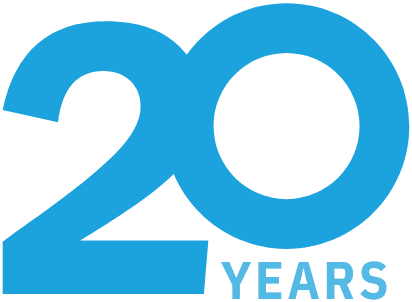Creating an effective records management system is rife with challenges like inefficiencies or lack of clarity and direction. Click here to see how we help organizations develop a tailored records management strategy. This article is part of the records management services guide: helping help readers understand what is the service and the best practices in using records management to make an organizational impact. Chapter 3 of the Records Management Services guide offers insights into the challenges of design and operation. The key challenges are tensions between compliance and efficiency, particularly with employee negligence in disposing of and archiving information, lack of resourcing and skills, serving information requests while adhering to confidentiality requirements, managing explosive data growth, and secure disposal of information. Read on to see how best practices can be utilized to help address these challenges.
“Very courteous staff who perform their duties in a timely, professional manner. We are very pleased with Blue-Pencil’s service and would highly recommend them in the future.”
– Shirmilla Maharaj
Click here for more customer reviews
 Challenges and Tips for Information Management
Challenges and Tips for Information Management
Organizations face a number of challenges when creating a records management system. Overcoming these challenges or barriers can make the difference in unlocking competitive edge, operational efficiency, and regulatory compliance while also safeguarding stakeholder information. Here are the top 7 challenges for information management:
Challenge 1: Need for balance of compliance and efficiency when managing records
These are the two main drives behind the endeavour of information management for an organization . Compliance and efficiency are sometimes seen as at odds, but both are important to organizational effectiveness. Compliance provides long-term efficiency, while efficiency offers a meeting of organizational objectives. In this way, the two are not separate. Helping stakeholders see that these values are shared will promote balance between compliance and operational staff. Knowing the true requirement versus regulatory interpretation of requirements can help organizations find that sweet spot that balances compliance and efficiency.
Tip: Work from the commonplace goal of doing what is right for the organization and understand real versus assumed requirements.
Challenge 2: Limited awareness of when information should be archived or disposed and lack of action
Despite company policies being set and training being provided, staff are still a significant factor in causing information leaks or confidentiality breaches. Organizations need to go beyond policy setting and regularly communicate, conduct archiving/disposal exercises with employees, and also incentivize behaviours that promote information security.
Tip: Help employees develop information security practices by implementing communication policies, conducting simulations, and rewarding good practices.
Challenge 3: Lack of adequate resourcing or skill set
As an organization grows, information management is seldom a priority for investment in resourcing or training. Organizational information management may be hampered by many challenges as an organization grows. Promote recognition that every area of the organization interacts with information to operate, therefore, better management is a win-win for all teams. Recognizing that each department needs information management resourcing and skill set development will help start the conversation on getting dedicated time for resources.
Tip: Recognize that information management is a key aspect of each team and train to address skill set gaps.
Challenge 4: Meeting information requests while preventing violations of client confidentiality
Ohio State University (OSU) notes this challenge as regulators request information from an organization. The impetus is to provide what is required while limiting the exposure of a client. Ensuring that there is communication between the organization and client on information requests, or a pre-approved waiver authorizing information release in the event of regulatory inquiry address this issue.
Tip: Communicate with clients on the inquiry or have pre-approved waivers to release client information to regulatory authorities.
A key step in information management is understanding information overload on an individual basis: check out this TED Talk on the topic.
Challenge 5: Managing exponentially multiplying information
The amount of information and data we are dealing with is multiplying exponentially and information managers are struggling to ensure business and regulatory requirements are met. Organizations must engage all staff in helping manage compliance, as they are best positioned to root out infractions and function as a key trigger in information disposal. Organizations that head in this direction must allocate time for employees to routinely determine what needs to be kept versus what needs to be disposed of. Simply assuming staff will do this despite packed schedules is haphazard and ineffective.
Tip: Information management is everyone’s duty and organizations should allocate employee time for maintaining compliance and efficiency.
Challenge 7: Managing Secure disposal of all information assets
The need to securely dispose of information assets once they are no longer useful to an organization is both a business and a regulatory imperative. Meeting regulatory requirements requires due diligence. Organizations may face scrutiny and sanctions if they choose to dispose of information assets on their own. Moreover, they are also expending unnecessary costs on media and paper shredding. Partnering with a secure service provider helps you meet regulations and also gives you the benefit of an advisor to help you navigate inquiries.
Tip: Engage in a qualified and experienced service provider to help you meet regulations and respond to inquiries.
How Blue-Pencil Helped an Automotive Dealership
Situation: With five automotive dealership locations in the GTA—each with an average of 50 employees, their D.I.Y. strategy meant various employees were shredding multiple documents throughout the day or, in some cases, disposing of confidential documents in recycling bins. With no destruction policies or procedures in place, shredding was arbitrary and non-compliant with PIPEDA regulations, leaving the company open to a considerable risk of fines from the Information and Privacy Commissioner of Ontario and Canada, increased customer acquisition activities, and diminished reputation and goodwill. 
Approach: After the client searched for a complete, GTA-based document destruction service, our customer decided to partner with Blue-Pencil at the beginning of 2015. The dealerships appreciated Blue-Pencil’s proactive approach in proposing an Office Shredding Program that included:
- Additional training and awareness
- Privacy-breach prevention strategy
- Additional manual procedures and controls
- Troubleshooting privacy opportunities
- Endpoint security solutions
Outcome: The efforts in improving our customer’s information security practices are paying off as evidenced by the reallocation of employee time towards running the business, and the company’s reduction of risk. Making use of an outsourced records management provider was the right decision for our customer for the reduction of on-site storage, for best practices consulting, and the management of document destruction at the end of their lifetime.
Blue-Pencil Helps Organizations Synergize Policy, Process, People, and Technology with Information Management to Deliver Value
Without a proven advisor, even the best strategies and technologies can remain disparate systems and organizations may remain at risk or suffer declining productivity. Our team focuses on helping companies ensure secure and effective records management across industries like government, healthcare, manufacturing, and small business.
Expert advisor in strategic information management and proven hands-on experience
Ability to deliver compliance while managing organizational efficiency
Proven systems and methodology for managing information retention schedules
Training, resources, and support for your staff to become adept at information management
High standards in information destruction services with NAID AAA and Privacy+ certification
Records Management Services Guide
- Records Management Services-What Are They?: Records Management Services Guide Chapter 1
- The 7 Keys To Creating An Effective Records Management System: Records Management Services Guide Chapter 2
- 7 Tips To Handle Challenges Of Information Management: Records Management Services Guide Chapter 3
- How To Create And Implement A Document Destruction Policy: Records Management Services Guide Chapter 4


